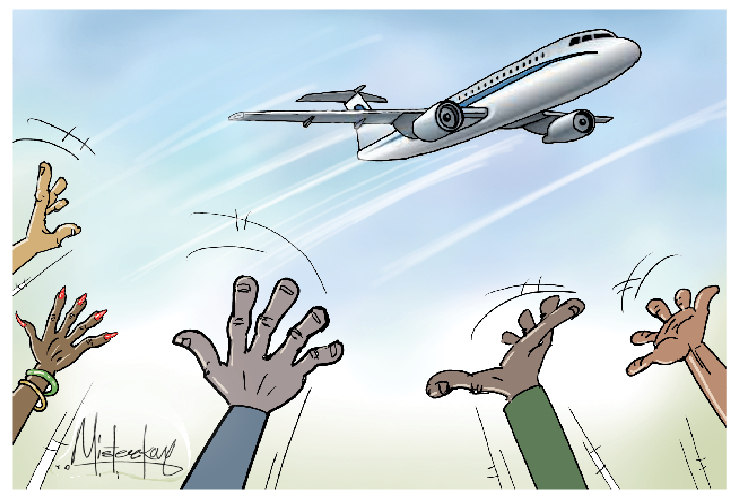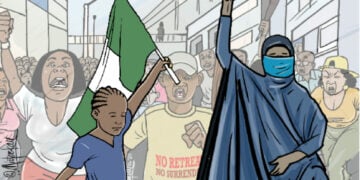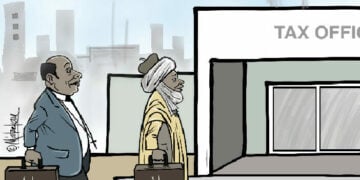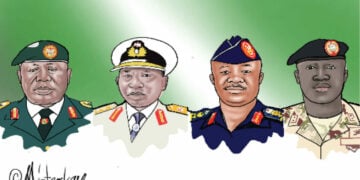A military officer who was Nigeria’s Aviation Minister between 1985 and 1993 during the Ibrahim Babangida years once made a remark that resonated sharply in the air: air travel, he said, was a luxury not meant for the poor. His words, brimming with indifference, sparked public outrage. Now, more than three decades later, that same sky seems even higher, farther—a sanctuary beyond the reach of most Nigerians, a realm where wings are bound by privilege alone.
Air travel holds particular significance in Nigeria, a nation grappling with poor road infrastructure, limited railway networks, and insecure land travel. For many, flying has been a safer and more reliable means of reaching distant locations, making it essential for business, family connectivity, and even access to healthcare. Yet, air travel costs have escalated dramatically in recent years, with one-way flights between major cities like Lagos and Abuja skyrocketing from around ₦75,000 (approximately $47) in 2020 to over ₦170,000 ($100) today. For most Nigerians, these prices are untenable, meaning essential connectivity is becoming increasingly elusive.
This rising inaccessibility of air travel underscores a critical need for reform in Nigeria’s transportation sector. A holistic solution is essential—not just for aviation but for creating viable, safe, and affordable alternatives in ground and water transportation. Nigeria’s reliance on air travel is partly a consequence of insufficient options. According to a 2023 report from Nigeria’s National Bureau of Statistics, approximately 60% of Nigeria’s roads are in poor condition, riddled with potholes and lacking essential maintenance. This makes road travel both dangerous and inefficient.
Over 500 cases of kidnapping were reported along Nigerian roads in the first half of 2024 alone, revealing a severe security problem that deters many from taking the road. Meanwhile, rail infrastructure remains inadequate, covering just 3,500 kilometres in contrast to India’s 65,000-kilometer network. Waterways also hold potential but have yet to be developed or maintained at a level that can serve as a viable alternative for most Nigerians.
Factors Driving Up Air Travel Cost
Various factors drive the soaring costs of air travel. The Nigerian Naira has declined sharply, making procuring aviation parts and fuel costly, typically priced in US dollars. Aviation fuel alone has seen a price increase of over 300% since 2020, constituting 40% of an airline’s operating expenses. These costs inevitably get passed on to consumers, pushing air travel further out of reach for ordinary Nigerians. Additionally, Nigerian airlines face over 15 separate taxes and regulatory fees, ranging from value-added tax to passenger service charges. These add-ons inflate business costs and, ultimately, ticket prices.
The high cost of air travel has serious implications for a nation where mobility is key to social and economic integration. Air travel is not just a mode of transportation; it represents economic opportunity, social mobility, and a means of unifying the country’s diverse regions. When air travel is affordable, it enables Nigerians to access jobs and markets, helps boost tourism, and fosters connections that strengthen communities. However, as it stands, the exclusivity of air travel is isolating these benefits to the wealthy, stifling broader economic and social growth.
Strategic Interventions Needed
Nigeria needs a multi-pronged approach that invests in its broader transportation infrastructure to address these challenges. Expanding road and rail networks would relieve the pressure on air travel and offer Nigerians more affordable alternatives. Public-private partnerships could play a key role in such projects, potentially creating jobs and improving connectivity across the country. For instance, countries like India have successfully used extensive rail networks to affordably link rural and urban areas. Nigeria has similar potential in its 10,000 kilometres of inland waterways, which, if better developed, could serve as efficient transport channels, moving people and goods.
Another pressing concern is the lack of security in Nigeria’s road, rail, and water travel options, which increases the demand for air travel as a safer alternative. The threats of banditry, kidnapping, and piracy make ground transportation dangerous, prompting many Nigerians to choose air travel for safety. By improving security through better policing and surveillance, the government can make other forms of transportation safer and more appealing. Reducing the dependence on air travel could, in turn, drive competition and help lower costs across the board.
Regulatory reform is also essential for Nigeria to achieve a more cost-effective and efficient aviation sector. Streamlining administrative processes and cutting unnecessary fees would lessen the operational burdens on airlines, which could translate to lower ticket prices. Some nations, like South Africa, have demonstrated that reducing bureaucratic hurdles and tax burdens in aviation can lower consumer costs without compromising safety standards. A similar approach in Nigeria could improve the accessibility and affordability of air travel.
Competition within Nigeria’s aviation market is another area ripe for reform. Encouraging the entry of new airlines could foster a competitive environment, leading to more affordable options. Kenya’s aviation sector, where national and local carriers compete, provides a model for how competition can drive down prices. With Nigeria’s recent signing of the Cape Town Convention, which facilitates aircraft financing, there is an opportunity to attract new entrants to the aviation market and diversify the options available to travellers.
Affordability And Accessibility
Nigeria’s Minister of Aviation, Festus Keyamo, is vital in spearheading initiatives to make air travel accessible. A comprehensive approach could include measures such as reducing taxes on aviation services, subsidising aviation fuel, and ensuring a stable foreign exchange rate for the aviation sector to reduce price volatility. Additionally, encouraging the entry of low-cost carriers and promoting fuel-efficient practices could create more affordable flight options. Establishing robust ground infrastructure, such as high-speed rail and improved roads, would ease air travel demand.
Strategic collaboration with neighbouring countries could also expand route options and lower costs through agreements encouraging open skies and regional integration. Developing local maintenance facilities and training aviation professionals domestically could reduce reliance on foreign expertise, lowering operational costs. Digital solutions, including an online complaints system like India’s AirSewa, could also enhance accountability, allowing passengers to report issues and ensure faster responses from authorities.
A broad-based approach, combining infrastructural investments, security enhancements, and regulatory reform, would improve the affordability and accessibility of air travel. Establishing robust transportation alternatives will foster competition and drive down costs, while tax reforms and streamlined regulations will ease airlines’ operational expenses.
Through targeted investments and reforms, Nigeria’s aviation sector can catalyse national growth, providing essential connectivity and creating economic opportunities. Air travel can once again be a bridge to opportunities, linking Nigerians with the tools for social and economic advancement. Achieving this vision will require commitment, strategic planning, and a long-term perspective, but the potential rewards—a more connected and prosperous Nigeria—are well worth the effort.





